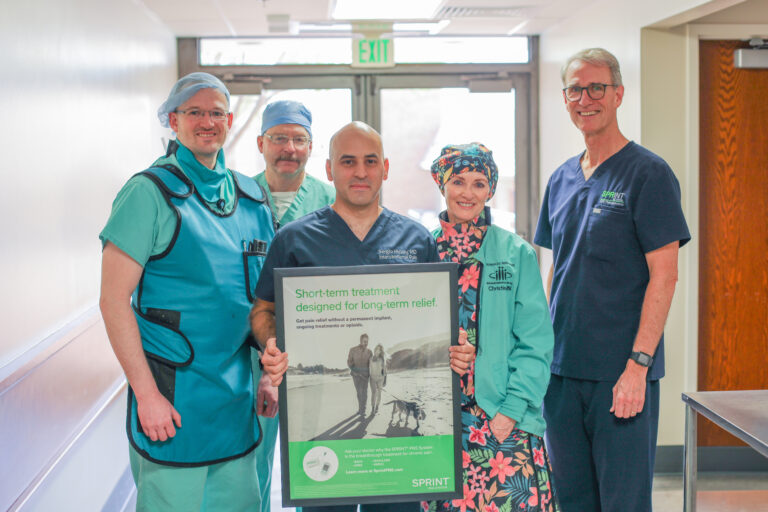Psychologists & Mental Health Professionals
Bingham Healthcare’s mental health workers help to change people’s lives.
Mental health is how we think, feel, and act in order to face life’s situations and experiences. It is how we look at ourselves, our lives, and the people we know and care about. It also helps determine how we handle stress, relate to others, evaluate our options, and make choices. Like physical health, mental health is important at every stage of life. Everyone has mental health.
While it is easy for someone to recognize when an individual has a high fever, mental health problems can be more difficult to identify. Mental health problems can’t always be seen, but the symptoms can be recognized.
Mental health problems can be diagnosed because mental health professionals have studied and documented the symptoms, such as: depression, anxiety, eating habits, and attention deficit/hyperactivity disorders.
Signs and Symptoms
Signs and symptoms of mental illness can vary, depending on the particular disorder and other factors. Mental illness symptoms can affect emotions, thoughts and behaviors. Sometimes symptoms of a mental health disorder appear as physical problems.
Abnormal Thinking, Behavior and Emotions
These types of mental illness signs and symptoms can include:
- Alcohol or drug abuse
- Confused thinking
- Detachment from reality (delusions) or hallucinations
- Excessive anger, hostility or violence
- Excessive fears or worries
- Feeling sad or down
- Inability to cope with daily problems or stress
- Physical symptoms
- Problems sleeping
- Sex drive changes
- Significant changes in eating habits
- Suicidal thinking
- Withdrawal from friends and activities
Physical signs and symptoms of mental illness may include:
- Back pain
- Chest pain
- Digestive problems
- Dizziness
- Dry mouth
- Fatigue
- Headache
- Rapid heart rate
- Sweating
- Weight gain or loss
Mental Health Providers
It’s estimated that 1 in 4 Americans is affected by mental health issues each year. If you think there are concerns in your life that could be helped by talking with a trained professional, you can reach out to one of our trained professionals. They are always welcoming new patients.
Our licensed clinical social worker as well as a psychologist work with people from all walks of life who need a little help, advice, and direction. In Blackfoot and Pocatello, they see children and adolescents, families, substance abuse issues, military, career, employment, retirement counseling and so much more.
Our counselors are well-educated and highly-trained professionals who often apply real-life experiences when giving advice and forming meaningful bonds with clients. “Help” is the main product that professional counselors have to offer, according to the American Counseling Association. Furthermore, they don’t tell someone what to do, but rather help guide the person in understanding and discovering what could make his or her relationships or situation better, or how to explore new paths in life.
Our social workers and case managers are also assigned to patient care areas at Bingham Memorial, and are trained to help patients and family members deal with financial, social and emotional issues that relate to illness or hospitalization. Members of the department also work with patients and families to help cope with long-term illnesses and rehabilitation and are involved in discharge planning.
Additionally, our social workers assist patients with any psychosocial needs during a hospital stay. This may include stressors from being sick, family difficulties, or history of mental health difficulties. If patients need follow up after a stay in the hospital, an appointment can be arranged with our mental health counselor.
Our counselors are trained to provide a process that helps people change for the better. And when someone is dealing with a loss, relationship issues, child rearing anxieties, anger, depression or any of the numerous issues that all of us can face, that’s when it’s time to turn to a licensed professional counselor.
Electroconvulsive Therapy
Bingham Healthcare offers effective medical treatments for depression, schizoaffective and bipolar disorders.
Electroconvulsive therapy, or ECT, induces seizure activity by releasing an electrical pulse through a portion of the brain. ECT is used for people whose depression is severe or life-threatening or who cannot take antidepressant medication. ECT is often effective in cases where antidepressant medications do not provide sufficient relief of symptoms or in cases where the side effects caused by antidepressants are not tolerable.
In recent years, ECT has been much improved. A muscle relaxant is given before treatment. ECT is done under brief general anesthesia. Two electrodes are placed at precise locations on the head to deliver electrical impulses.
The stimulation causes a brief (about 30 seconds) seizure within the brain. The patient does not consciously experience the electrical stimulus. For full therapeutic benefit, at least several sessions of ECT, typically given at the rate of three per week, are required. ECT resembles cardioversion, a common medical procedure in which the heart is stimulated electrically in order to restore normal function. However, ECT uses a much smaller amount of electricity.
What are the indicators for ECT?
The most frequent indication for ECT is severe depression. Bipolar disorder and schizoaffective disorder are other illnesses that are effectively treated by ECT. Psychiatric evaluation will be obtained to determine the necessity of treatment.
What are the Side Effects of ECT?
Side effects may result from the anesthesia, the ECT treatment or both. Common side effects include temporary short-term memory loss, such as recent events, dates or what you ate that morning. Other side effects could include confusion, nausea, muscle aches and headache. Some people may have longer-lasting problems with memory after ECT, but this type of memory loss is rare. In most patients, the memory disturbances go away within a few hours.
Is ECT a Frightening Procedure?
Absolutely not. Our ECT procedure lasts only a few seconds and the patient wakes up from the effects of anesthesia within 5 to 10 minutes. It is a well-controlled, highly successful treatment option.
What is the Success Rate of ECT?
ECT is an effective medical treatment option, helping as many as 90 percent of patients who receive it. Most patients remain well for many months afterwards. The tendency to relapse after a favorable treatment outcome can often be countered by medication after a series of treatments. Maintenance treatments of ECT may be given depending on individual patient needs.
Find Our Additional Information
Our specialists visit with patients in Blackfoot inside the Bingham Memorial Medical Plaza. You can schedule an appointment by calling (208) 782-2991.



